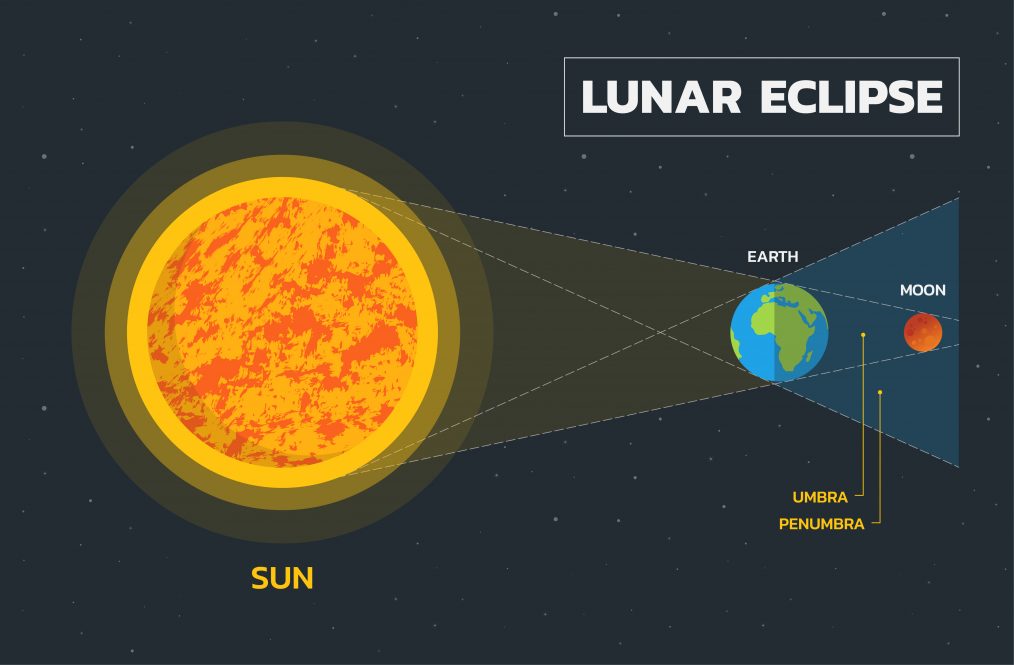An eclipse of November’s full moon, called the Beaver Moon, will be happening early in the morning on Friday, Nov.19, and is the longest partial lunar eclipse to grace our skies this century. UConn physics student and black hole research group member Rei-Matthew Regala ’22 (CLAS) will be on the lookout for the eclipse. He met with UConn Today to tell us more about this cosmic spectacle.
Can you tell us about the eclipse and how eclipses happen?
Yes! The upcoming event is a lunar eclipse. A lunar eclipse looks a lot different in comparison to the trademark ‘white ring’ solar eclipses exhibit. Instead, the moon takes on a red hue — the background behind the nickname “blood moon”— similar to that of a sunset.
In order for a lunar eclipse to occur, the sun, Earth, and moon must be aligned in a straight path, in that particular order. As the moon crosses our night sky, it gets caught in the shadow of our planet. Light from the sun then hits our atmosphere at an angle that extends the light’s travel time in our gaseous upper layers. Due to Rayleigh Scattering, wavelengths between green and violet on the visible spectrum are refracted more strongly than their red counterparts. As a result of those two factors, the moon is cast in red light while all other colors are sent in different directions.
Will we be able to see it here in Connecticut?
You can view the event early in the morning on Nov 19th. The eclipse will start around 2 a.m., but will reach its peak around 4 a.m. The event is completely safe to view with your naked eye, so if you want to watch just go outside between those times (weather permitting)!
What impacts the duration of an eclipse?
The distance between the Earth and Moon isn’t constant, meaning the Moon’s path isn’t a circle but rather an ellipse. According to Kepler’s 2nd Law, an object will have a lower velocity the further away it is from its gravitational anchor. I believe that the moon’s stage in orbit during the eclipse is most likely close to its apogee — the greatest distance from the Earth. Therefore, with Kepler’s 2nd Law in mind, we can deduce the moon will move relatively slower across Earth’s shadow, giving us an extended lunar eclipse!
Are there other interesting facts about lunar eclipses that you can share?
A lot of ancient societies used to think lunar eclipses indicated a higher power was upset with humans, or that the moon was under attack by demons. Interesting, but rest assured the lunar eclipse will have no effect on your day-to-day activities!



